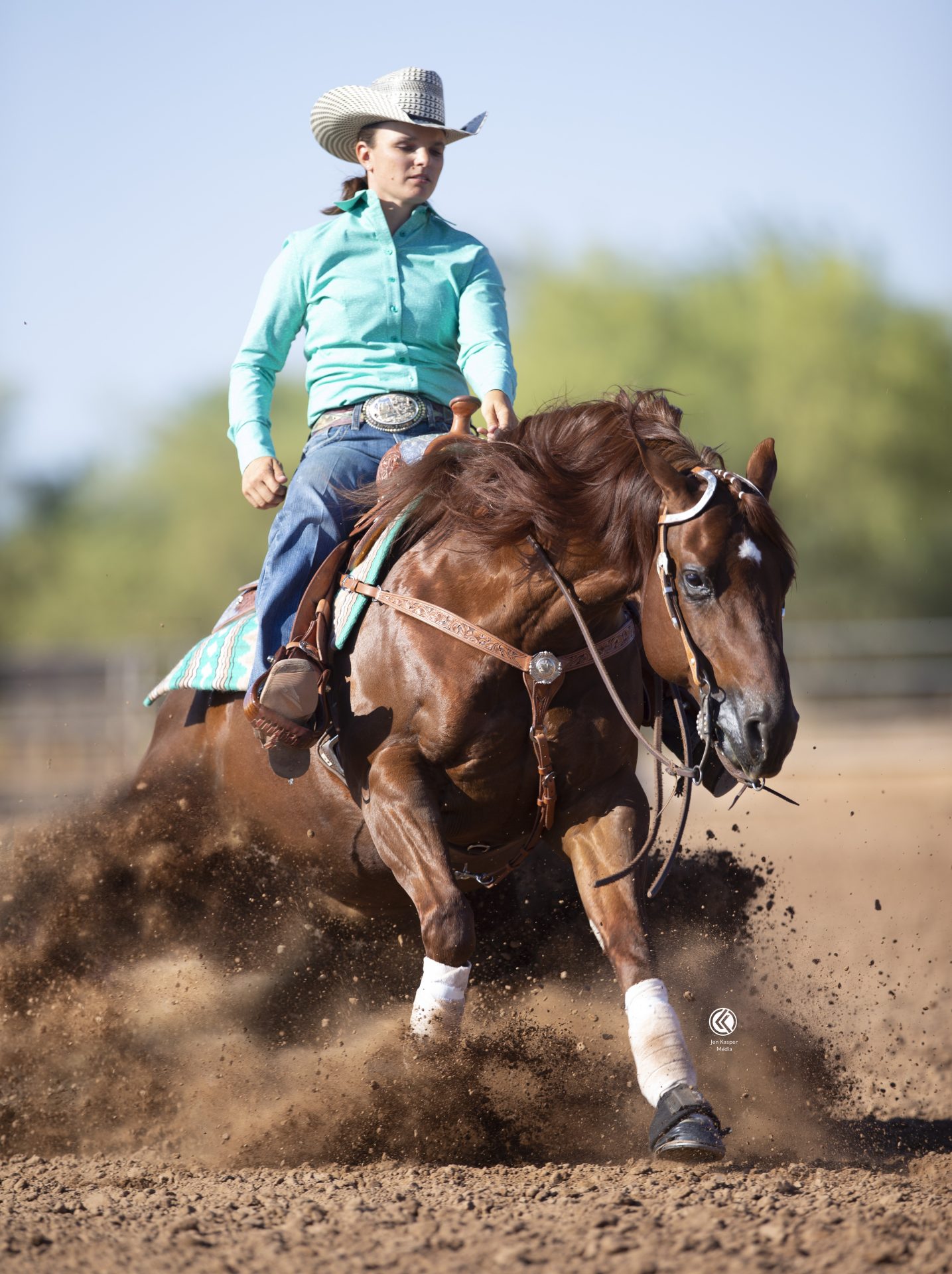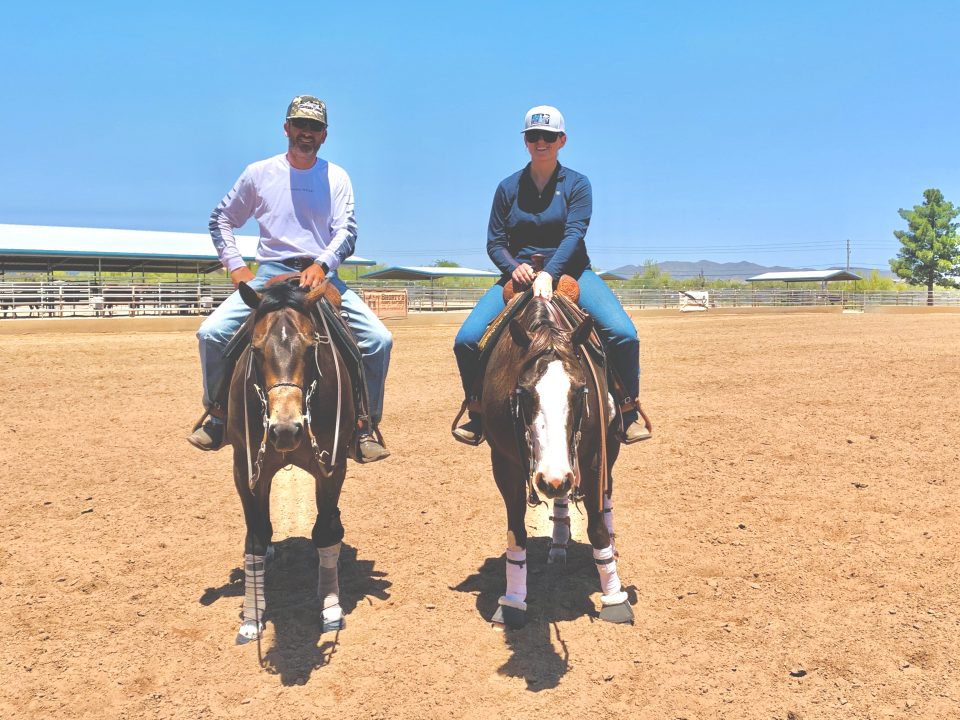Working abroad can have a big impact on your business.
By Abigail Boatwright

As an up-and-coming trainer, so much value can be gained from learning from more experienced horsemen. But if opportunities in your own country are limited—or the chance to work with a trainer in another country arises—working internationally can have many benefits. But before you update your passport and hop on a plane, you need to consider the logistics—and the challenges. We consulted with three trainers who’ve each spent time abroad while gaining experience under reining trainers to share their experiences.
Linde von Koeding
Linde von Koeding is originally from Leipzig, Germany. She grew up in the city, but horses were always in her blood, and she rode as much as possible. Wanting to learn from the best reining trainers in the country where the sport originated, she became determined to move to the United States to work for a horse trainer. A mutual friend connected von Koeding with Bob Anthony, and in 2006 she moved to Tallahassee, Florida, on a student visa. She lived in housing on site provided by the trainer. She traveled back and forth from Germany to the U.S. on various student visas until she moved to America permanently. In 2017 von Koeding started her own training business in Scottsdale, Arizona.
What are some lessons you learned in this setting that have helped you in your training business today?
von Koeding: Hard work and a good work ethic pays off. Taking responsibility and putting the welfare of the horse above all will earn you a lot of respect and provide opportunities over time.
What are some of the challenges you encountered working in another country, and how did you handle them?
von Koeding: My biggest challenge, hands down, was staying here legally on visas. Cultural differences also took a while to adjust, and topped off with a language barrier, it took a little time to figure out how to communicate properly and effectively.
How did you handle employment laws and visas?
von Koeding: I had my immigration lawyer involved in all but one visa process to avoid mistakes that could lead to being denied. It cost a lot of money, but I considered it worth it.
What advice would you give someone who is considering working for a trainer in another country?
von Koeding: Ideally, find a place to work at that keeps their employees for a long time. That usually speaks for how they treat their people. Social media can be an easy way of connecting with some people and finding out more about different trainers, facilities, and locations.
Read the rest of this article at the links above.



